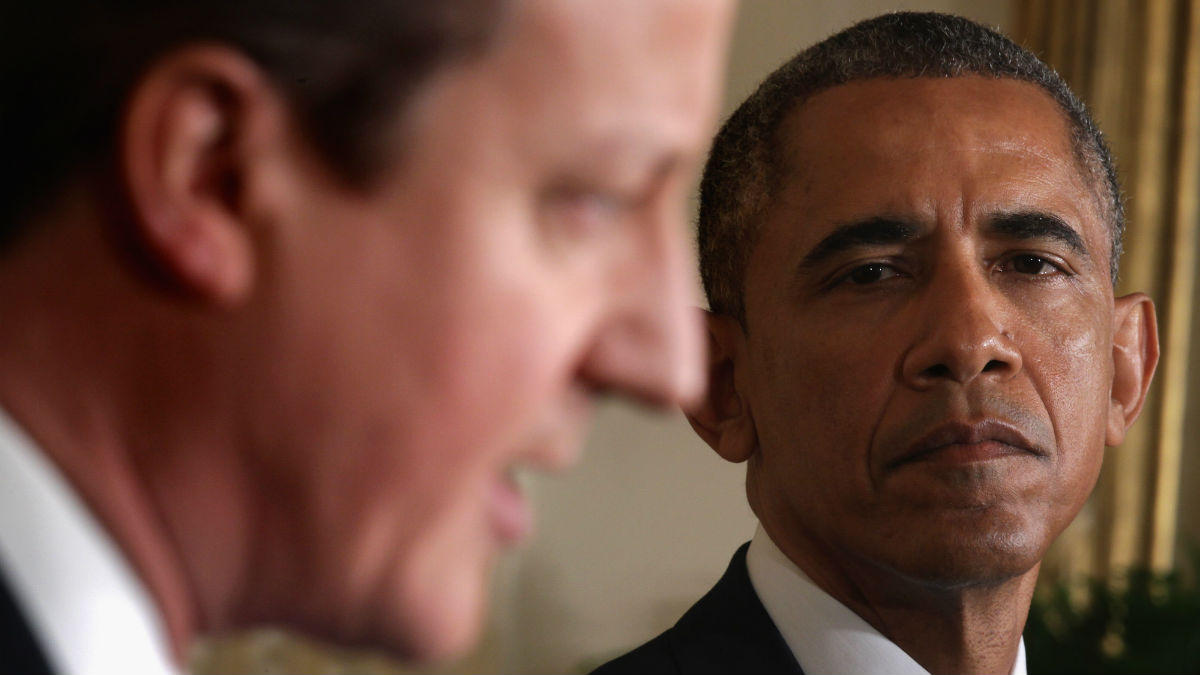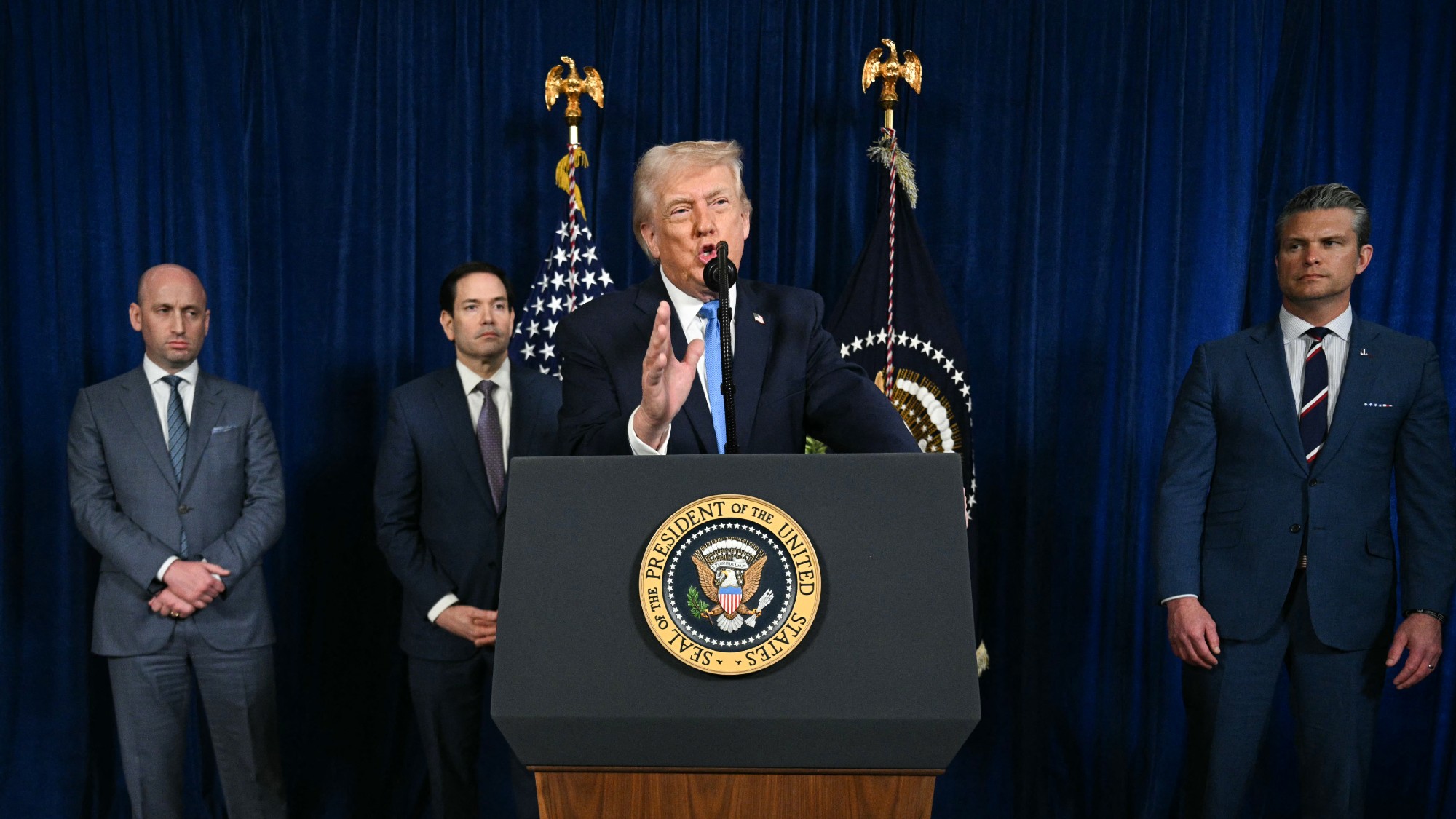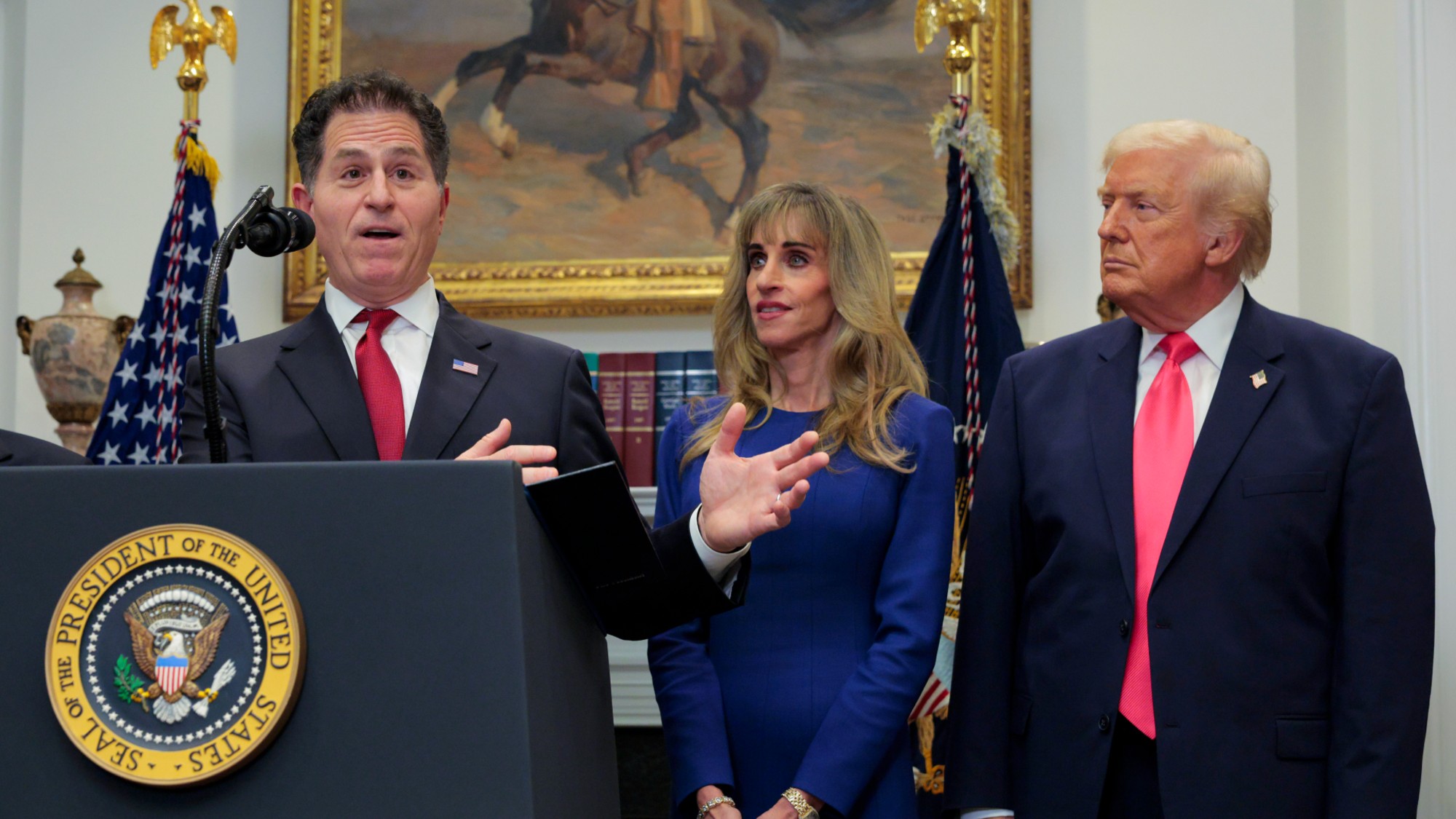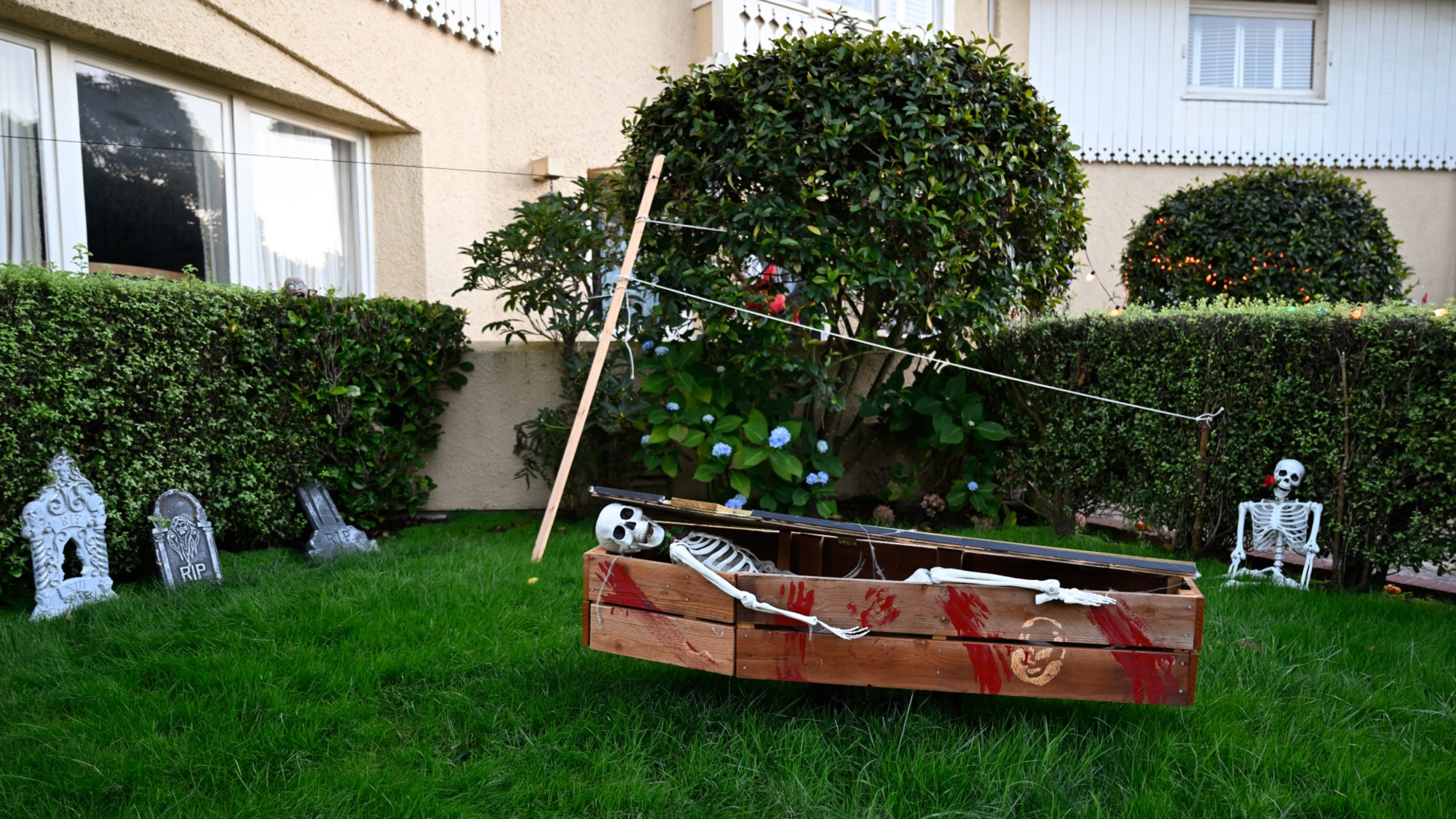Barack Obama criticises David Cameron for Libya 's*** show'
US President speaks out during interview – but White House insists it 'deeply' values UK's contributions

A free daily email with the biggest news stories of the day – and the best features from TheWeek.com
You are now subscribed
Your newsletter sign-up was successful
Barack Obama has criticised the role played by Britain and France in the liberation of Libya, accusing Prime Minister David Cameron of being "distracted" by domestic priorities as the North African country became a "mess".
In an interview with The Atlantic magazine, the US President said the plan for military intervention had been executed "as well as I could have expected", but accused his allies of losing interest.
"We got a UN mandate, we built a coalition, it cost us $1bn – which, when it comes to military operations, is very cheap. We averted large-scale civilian casualties; we prevented what almost surely would have been a prolonged and bloody civil conflict. And despite all that, Libya is a mess," he said.
The Week
Escape your echo chamber. Get the facts behind the news, plus analysis from multiple perspectives.

Sign up for The Week's Free Newsletters
From our morning news briefing to a weekly Good News Newsletter, get the best of The Week delivered directly to your inbox.
From our morning news briefing to a weekly Good News Newsletter, get the best of The Week delivered directly to your inbox.
The Atlantic claims "mess" was Obama’s "diplomatic term" and that privately, he called Libya a "s*** show", in part because it had become a haven for Islamic State.
Five years after the removal of Colonel Muammar Gaddafi, Libya remains in a state of political and social turmoil. The internationally recognised government no longer controls several parts of the country, including the capital Tripoli and the central port of Sirte, Gaddafi's birthplace and a former stronghold for regime loyalists.
Obama said there was "room for criticism" because he had "more faith in the Europeans, given Libya's proximity, being invested in the follow-up".
He also partly blamed the UK for the lack of intervention in Syria in 2013 following the use of chemical weapons against civilians.
A free daily email with the biggest news stories of the day – and the best features from TheWeek.com
"A major factor was the failure of Cameron to obtain the consent of his parliament," he said.
In response to the interview, a spokesman for the US National Security Council said Cameron had been "as close a partner as the President has had", adding: "We deeply value the UK's contributions on our shared national security and foreign policy objectives."
A spokesman for Cameron also said Britain was still "working hard" in Libya – although BBC North America editor Jon Sopel says "the unsolicited statement put out by the White House suggested Downing Street had reacted angrily to the article".
-
 Local elections 2026: where are they and who is expected to win?
Local elections 2026: where are they and who is expected to win?The Explainer Labour is braced for heavy losses and U-turn on postponing some council elections hasn’t helped the party’s prospects
-
 6 of the world’s most accessible destinations
6 of the world’s most accessible destinationsThe Week Recommends Experience all of Berlin, Singapore and Sydney
-
 How the FCC’s ‘equal time’ rule works
How the FCC’s ‘equal time’ rule worksIn the Spotlight The law is at the heart of the Colbert-CBS conflict
-
 Local elections 2026: where are they and who is expected to win?
Local elections 2026: where are they and who is expected to win?The Explainer Labour is braced for heavy losses and U-turn on postponing some council elections hasn’t helped the party’s prospects
-
 How corrupt is the UK?
How corrupt is the UK?The Explainer Decline in standards ‘risks becoming a defining feature of our political culture’ as Britain falls to lowest ever score on global index
-
 The high street: Britain’s next political battleground?
The high street: Britain’s next political battleground?In the Spotlight Mass closure of shops and influx of organised crime are fuelling voter anger, and offer an opening for Reform UK
-
 What is the Donroe Doctrine?
What is the Donroe Doctrine?The Explainer Donald Trump has taken a 19th century US foreign policy and turbocharged it
-
 ‘These accounts clearly are designed as a capitalist alternative’
‘These accounts clearly are designed as a capitalist alternative’Instant Opinion Opinion, comment and editorials of the day
-
 Is a Reform-Tory pact becoming more likely?
Is a Reform-Tory pact becoming more likely?Today’s Big Question Nigel Farage’s party is ahead in the polls but still falls well short of a Commons majority, while Conservatives are still losing MPs to Reform
-
 ‘This estrangement from death has beget euphemisms’
‘This estrangement from death has beget euphemisms’Instant Opinion Opinion, comment and editorials of the day
-
 Taking the low road: why the SNP is still standing strong
Taking the low road: why the SNP is still standing strongTalking Point Party is on track for a fifth consecutive victory in May’s Holyrood election, despite controversies and plummeting support